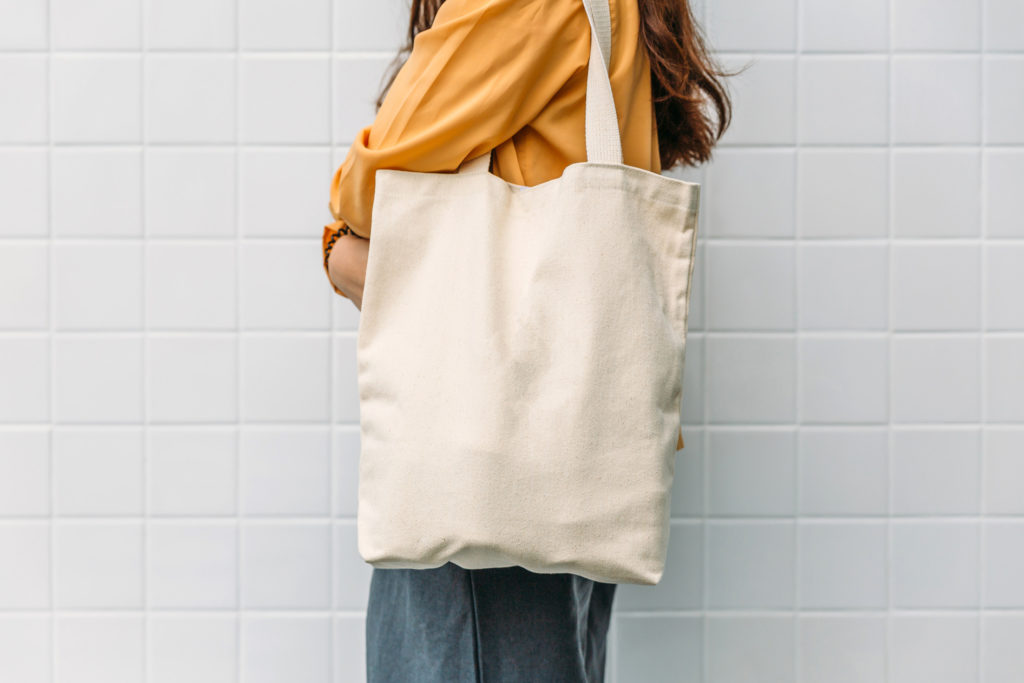This outward symbol of an individual’s inner commitment to the planet has unexpectedly become part of the problem, because tote bags pollute. In addition to issues related to the ubiquitous tote bag material, cotton, these bags are barely recyclable, and the printing that is used on them is not necessarily sustainable. So beware of this pretender.
How many do you have? One, five, 10, 15? As plastic bags become increasingly rarer (which is a good thing), we have seen tote bags and cotton bags take up a prominent place, first showing up in luxury stores, then vintage shops, then everywhere.
It has become a symbol, for brands, to show their commitment to the planet, even if manufacturing tote bags actually comes with a significant environmental cost. So it turns out that the unabashed adoption of the cotton tote bag has actually created a new problem.

The problem is not new. Back in 2018, a study conducted by Denmark’s Ministry of Environment and Food, concluded that a bag would have to be used 20,000 times to offset the overall impact of its production. In other words, if you really want to be consistent, you would have to use your favorite tote bag every day for… 54 years. On top of that, cotton production is associated with the forced labor of Uyghurs in Xinjiang, China, which produces 20% of the world’s cotton.
Recycling and dyes
The New York Times brought the subject back to the forefront with an article entitled “The Cotton Tote Crisis” published on August 24. In addition to the problem of production, the newspaper raises the problem of collection and recycling. Interviewed by the newspaper, Maxine Bédat, director of the New Standard Institute, a non-profit organization specialized in fashion and sustainable development, said that she has “yet to find a municipal compost that will accept textiles.” And only 15% of the 30 million tons of cotton produced each year actually goes to textile depots.

And even when they do make it to a recycling facility, it’s difficult to remove the PVC-based logos or the dyes used to print them. According to Christopher Stanev, co-founder of Evrnu, a Seattle-based textile recycling company, the printed designs must be cut out of the fabric. Not to mention that the old fabric must then be turned into new fabric… which consumes almost as much energy as its original manufacture.
Does all this mean that we should switch back to plastic bags? The short answer is no. Because cotton is no worse than plastic. In fact, they are hardly comparable. While cotton can use pesticides (if not grown organically) and dry up rivers because of its water consumption, plastic bags use fossil fuels that emit greenhouse gases, are never biodegradable and clog the oceans.
Faced with this issue, some brands are turning to other textile solutions. British designer Ally Capellino recently abandoned the use of cotton for hemp, while Anya Hindmarch introduced a new version of her original, pioneering tote bag, this time made from recycled water bottles.
In the end, the simplest solution is perhaps the most obvious: not every product needs the extra packaging of a bag. JB
RELATED STORIES:
Sustainable fashion still a confusing concept for consumers — survey
Living for those likes? Check if you’re a purveyor of ‘travel porn’


